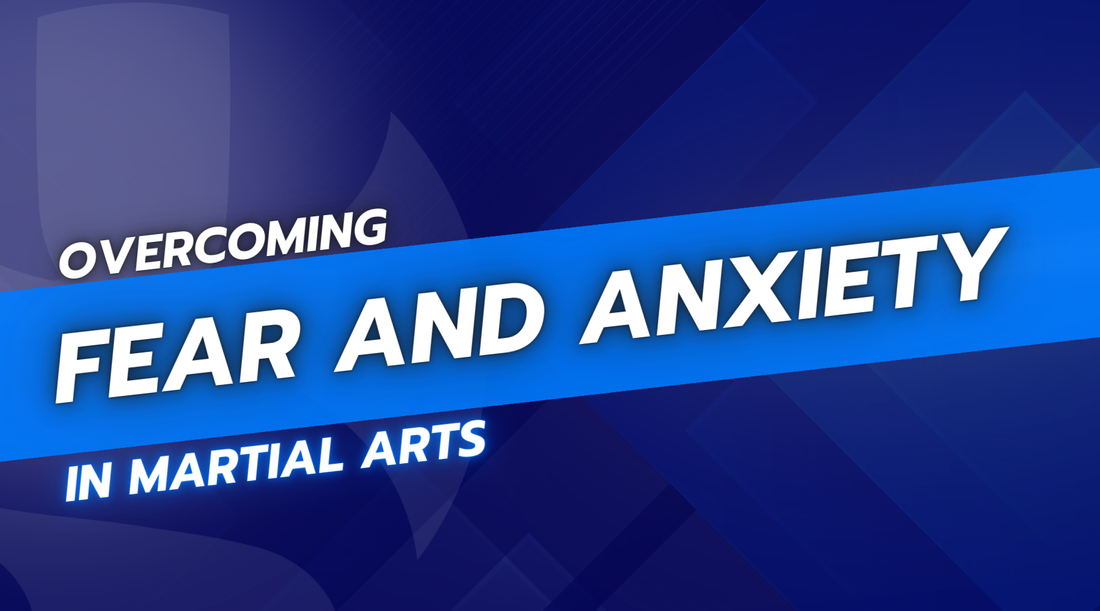
Overcoming Fear and Anxiety in Martial Arts
Share
Fear and anxiety are natural emotions that can hinder progress in martial arts. Addressing these feelings is crucial for achieving peak performance and enjoying the numerous benefits martial arts offer, such as improved physical fitness, mental discipline, and self-defense skills. Let's delve into how to overcome these barriers and enhance your martial arts journey.
Understanding Fear and Anxiety
Fear and anxiety, though often used interchangeably, have distinct definitions. Fear is a response to an immediate threat, while anxiety is apprehension about potential future threats. In martial arts, fear might manifest as a fear of injury during sparring, while anxiety could involve worry about upcoming competitions.
Psychological Aspects of Fear and Anxiety
Fear can significantly impact performance by triggering the amygdala, the brain's fear center. This can lead to the fight-or-flight response, causing physical symptoms like increased heart rate and sweating. Cognitive behavioral aspects also play a role, where negative thought patterns can exacerbate anxiety and hinder performance.
Identifying Personal Fears
Self-reflection is essential in identifying the specific fears that affect your martial arts practice. Common fears include fear of injury, failure, and embarrassment. By acknowledging these fears, you can begin to address them directly.
Mindfulness and Meditation
Mindfulness and meditation are powerful tools in managing anxiety. Practicing mindfulness helps you stay present and focused during training, reducing anxiety about past or future events. Simple techniques like deep breathing and body scans can make a significant difference. Incorporating meditation into your routine can help calm your mind and enhance your overall well-being.
Breathing Techniques
Proper breathing is fundamental in managing fear and anxiety. Techniques such as diaphragmatic breathing and the 4-7-8 method can calm your nerves and improve focus. Practicing these exercises regularly can help you stay composed under pressure.
Visualization and Mental Imagery
Visualization involves mentally rehearsing scenarios to build confidence and reduce anxiety. By vividly imagining successful outcomes, you can prepare your mind and body for actual performance. This technique is used by many athletes to overcome fear and improve performance.
Gradual Exposure and Desensitization
Exposure therapy is a method used to gradually face and desensitize fears. In martial arts, this could involve progressively increasing the intensity of sparring sessions or competitions. Starting with less intimidating situations and gradually building up can help you manage fear more effectively.
Positive Self-talk and Affirmations
Positive self-talk and affirmations are crucial in managing anxiety. Developing a habit of encouraging yourself with positive statements can replace negative thought patterns. Create personalized affirmations that resonate with you and incorporate them into your daily routine.
Building Confidence through Practice
Consistent practice is key to building confidence in martial arts. Setting realistic goals and tracking your progress can provide a sense of achievement and motivate you to keep improving. The more you practice, the more comfortable and confident you'll become.
Support Systems and Mentorship
Having a support system can make a significant difference in overcoming fear and anxiety. Instructors, peers, and mentors can provide guidance, encouragement, and valuable feedback. Finding a mentor who understands your challenges and goals can be particularly beneficial.
Physical Conditioning
Physical fitness directly impacts your mental state. Regular exercise releases endorphins, which can improve mood and reduce anxiety. Integrating physical conditioning with your martial arts training can enhance both your physical and mental resilience.
Healthy Lifestyle Choices
Healthy lifestyle choices, such as proper nutrition and adequate sleep, play a crucial role in managing anxiety. A balanced diet and good sleep hygiene can significantly affect your mental well-being. Additionally, avoiding substances like caffeine and alcohol, which can increase anxiety, is advisable.
Professional Help
Sometimes, professional assistance is necessary to manage anxiety effectively. Therapists, counselors, and other mental health professionals can provide tools and techniques tailored to your specific needs. Integrating their advice with your martial arts practice can yield optimal results.
Final Thoughts
Overcoming fear and anxiety in martial arts is a multifaceted process that involves psychological, physical, and lifestyle changes. By applying mindfulness, breathing techniques, visualization, and seeking support, you can conquer these barriers and fully enjoy the benefits of martial arts. Remember, it's a journey, and every step forward is a victory.
